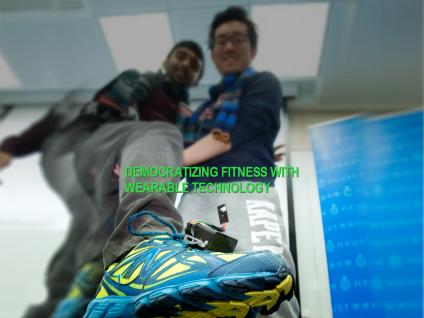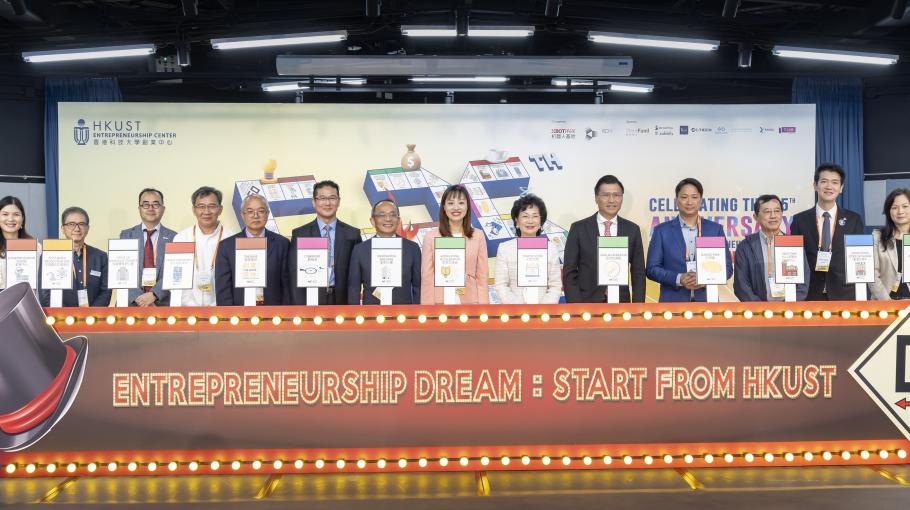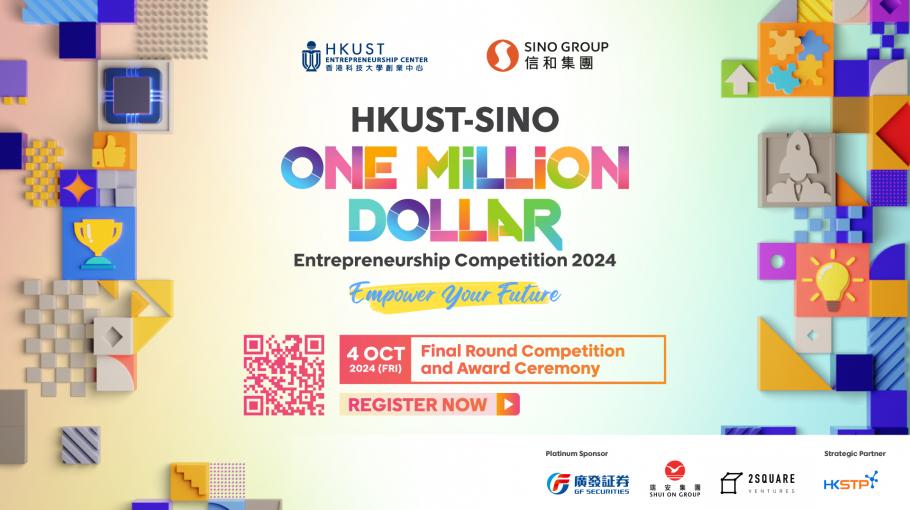Formed by three HKUST MPhil students of the Technology, Leadership and Entrepreneurship Program, Sensable Dynamics, formerly known as team NGgear Fit-Kick, beat 15 competitors and achieved a double victory in both the YDC E-Challenge 2015 and the HKSTP Technopreneur Award sponsored by the Hong Kong Science & Technology Parks Corporation this year.
The winning product, Fit-Kick, is a sensor-embedded wearable ankle sleeve made specially for millennials to offer quick, convenient fitness and sports training anywhere, anytime. Fitness apps, fitness trackers, video subscriptions or online video chat training are becoming mainstream as millennials have quickly turned into the world’s busiest generation. But all of these solutions only offer instructions while giving no personalized guidance on how the routines are being performed.
Going far beyond fitness trackers, which are becoming notorious for tracking very trivial data like foot-steps, GPS positioning and calories, the smart sleeves developed by Sensable Dynamics will launch with a range of applications in mind, such as bodyweight training, yoga, running, and cycling. Fit-Kick, with its innovative application of technology, vast market potential and positive social contribution, successfully stood out among other competitors.
“We envision a platform made for fitness and sports training where people can explore a variety of activities and consume content from certified and renowned trainers or fitness facilities,” team member Phillip Chan said. “We want to change the way fitness facilities offer their services, and reach out to a wider and busier audience with wearable technology.”
To make their entrepreneurial dreams come true, Sensable Dynamics aims to collaborate with fitness facilities, healthcare providers and public health authorities to promote sports and fitness training in Hong Kong. The team is looking to raise US$500,000 to launch the product via a crowdfunding campaign, and conduct trials in Hong Kong within a year.
Sensable Dynamics was co-founded by Jitesh Surendar Chhabria, Derek Yip and Phillip Chan.
The team has received extensive support from HKUST and is especially grateful to the supervisors, Prof Jack Cheng, Prof Tim Woo and Prof Man Sun Chan. The team has also received extensive support from their advisers, Prof Po Chi Wu, Prof Mitchell Tseng and Prof Michael Sung.





